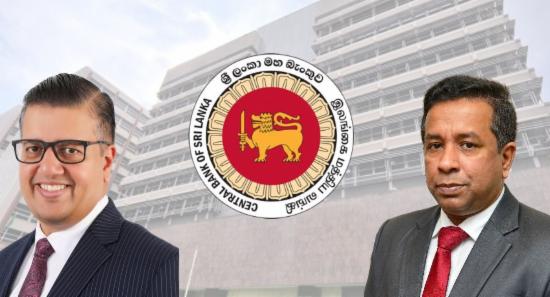.webp)

Crucial conditions changed just days before signing contract with foreign fuel supplier
Colombo (News 1st) - A dramatic new controversy has arisen to muddy the waters around the opening of Sri Lanka’s retail fuel market to foreign suppliers, with revelations that a Cabinet paper was presented just three days before the signing of one of the contracts to make crucial policy changes that would result in the government losing out financially.
It is now reported that two crucial prior conditions were amended via a cabinet decision before the agreements were inked.
One key condition was that foreign companies would not be allowed to take the proceeds from the sale of fuel out of the country until after one year from the importation of the respective fuel stock. In addition, it was also stated in the preliminary conditions that the conversion of the income into dollars would be allowed only after 9 months.
Another condition was that one percent of the total monthly sales value of petroleum products brought into the country on a monthly basis would be retained by the ministry or a nominated institution.
However, just four days before the signing of the agreement with Sinopec on May 22nd, a cabinet paper on May 19th proposed to remove both of these conditions.
Sunil Handunnetti, National Executive Member of the Jathika Jana Balavegaya and a former Chairman of the Parliamentary Committee on Public Enterprises (COPE), commented on this situation during a recent Mawatha intellectual discussion program.
"A proposal has been made by the Central Bank of Sri Lanka. It says that given the competitive market for fuel, and that foreign reserves are strengthening, the 1% retention will be abolished. Further, they can proceed with rupee to dollar conversions at any given time. That means they can engage in these transactions immediately. The decision was approved by the Cabinet on the 6th of June. Based on my calculations, the retention per month from one foreign firm is around 10 Million dollars," said Handunnetti.
Ashoka Ranwala, Chairman of the Ceylon Petroleum General Employees Union, said: "USD 450 million is spent monthly on fuel imports. That's over USD 4.5 billion per year. Name a company that will not touch USD 4.5 billion from the treasury, and will spend their own money to import fuel? Is the cabinet paper valid after the amendments were made? No. That cabinet paper is not worth anything."
Sri Lanka decided to open its retail fuel market to three foreign suppliers in response to the foreign exchange crisis and to ensure an uninterrupted fuel supply to consumers. When the government signed agreements with SINOPEC and RM Parks Inc., the Ministry of Power and Energy said that with the inability to provide sufficient foreign exchange for fuel shipments, the Ceylon Petroleum Corporation (CPC) and Lanka Indian Oil Company (LIOC) faced significant challenges that led to fuel queues.
Other Articles
Featured News





.png )













-812087_550x300.jpg)
-810262_550x300.jpg)
-809496_550x300.jpg)








.webp)






